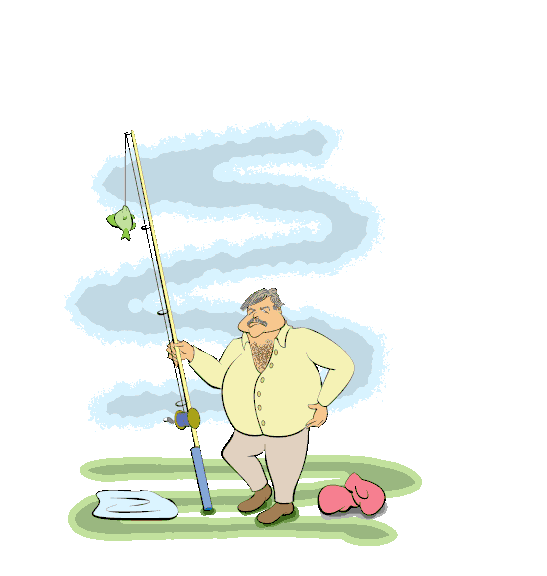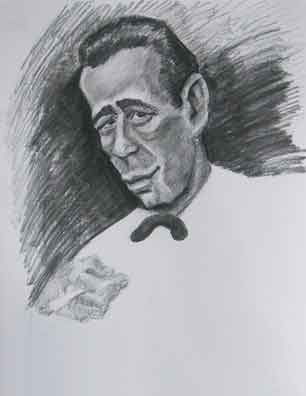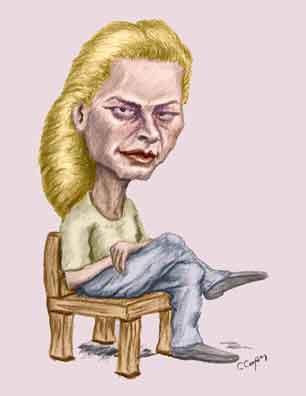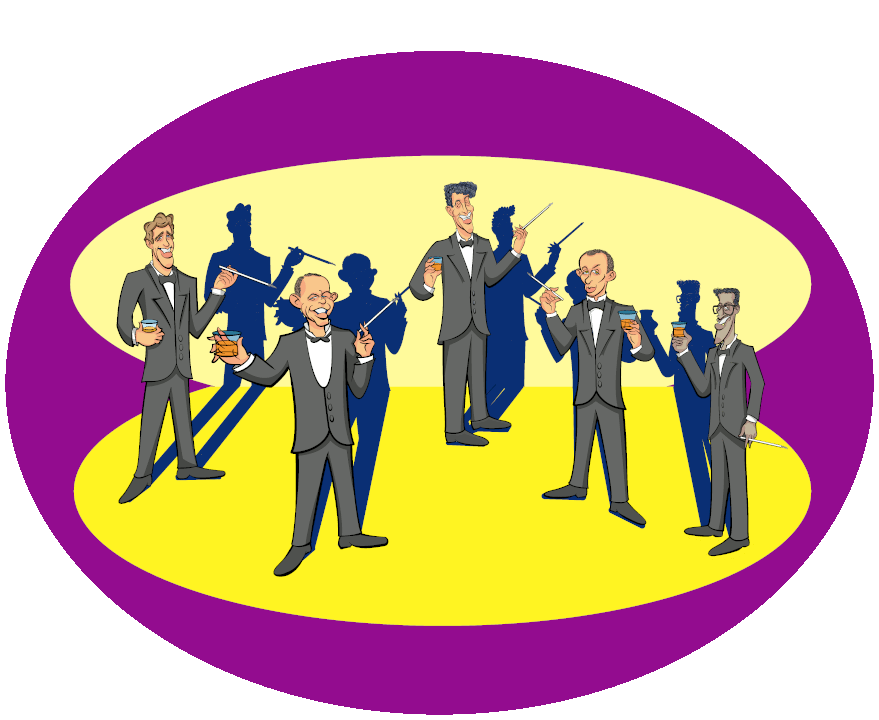Bogey and Bacall
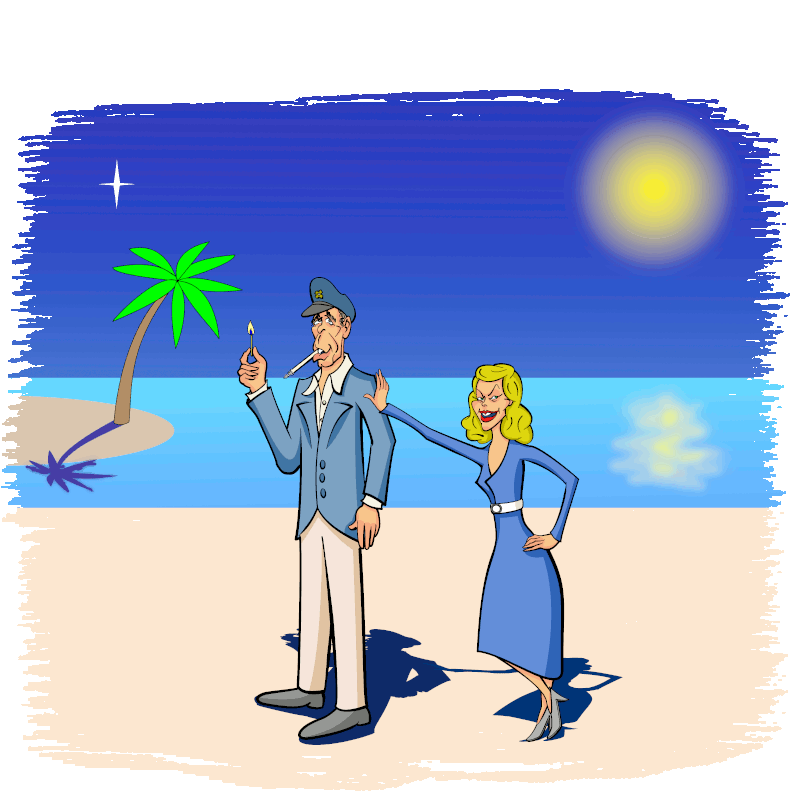
(Click on the image to zoom in.)
"You know how to whistle, don't you, Steve? You just put your lips together and blow."
- To Have and Have Not, 1944.
"You miserable little crut."
"You big bully."
- To Have and Have Not, 1937.
Sometimes a movie is better than the book. And if some critics don't consider To Have and Have Not to be Ernest Hemingway's worst novel, they at least see it as a good runner up.1
Footnote
Today you'll read that Ernest's novel Across the River and Into the Trees, published in 1950 and a novel about World War II, is Ernest writing at his worst. The criticism was that by then Ernest had become some wrapped up in his public persona that he was consciously trying to write like Ernest Hemingway and the book ended up as unintentional self-parody. Even Hemingway's wife, Mary, and to whom the book was dedicated, thought it his poorest novel. Other critics referred to it as a "hairy-chested novel" implying there was a false machismo in the plot of an aging World War II soldier having an involvement with a young Italian countess.
Today, though, readers seem to be a bit more forgiving and even at the time there were reviewers who looked at it as not bad, but just a bit tough to figure out. One critic pointed out even if the book was sub-par Ernest that he still retained "some of his old mastery".
Another reviewer did not actually take exception to the book but did point out that Ernest erred when he stated that the title is from Tomas "Stonewall" Jackson's last words in 1863, after he was accidentally shot by friendly fire. What Stonewall actually said was "Let us pass over the river and rest under the shade of the trees."
Actually the words quoted by Stonewall are verbatim from a Methodist hymn, "Let Us Pass Over the River" by Kate Cameron and R. M. McIntosh. The irony is that Stonewall was a "fire-breathing Presbyterian" who nevertheless participated surreptitiously in dancing.
But the movie isn't half bad, even though there were changes in the plot which were made for some rather strange reasons.
The movie opens as the owner of a charter fishing boat, Harry Morgan, is about to take a client named Mr. Johnson fishing for marlin off the island of Martinique. Harry charges $35 a day which was good money in 1940.2
Footnote
The movie was released in 1944 and the setting was before America entered World War II but after Germany had invaded France. Germany had occupied the north and west part of the country leaving the southern part regions nominally independent as "Vichy" France. Martinique was under the control of Vichy France which officially still maintained diplomatic relations with the United States.
Harry's crew is composed of a "rummy" named Eddy (played by Walter Brennen, Granpa Amos of The Real McCoys and the father of the Three Stooges in Restless Knights) and a native fisherman Horatio (played by the calypso singer Lancelot Pinard who went by the professional name Sir Lancelot).
They've been going out everyday for three weeks and haven't caught anything. But now on their last day out, Mr. Johnson, hooks a huge marlin and then looses the expensive fishing rig overboard because he screwed down the drag on the line despite Harry's repeated instructions to keep the drag light.
Back on shore Mr. Johnson decides he's had enough of fishing. So Harry tells him he owes for sixteen days at $35 a day and $275 for loosing the rod and reel. That's $825.
At first Mr. Johnson objects to paying for the extra cost of the rod and reel. But as Harry is not budging he finally agrees. But Mr. Johnson says he'll have to go to the bank the next morning since he doesn't have the extra money.
At the Marquis Hotel, Harry's favorite hangout, he is met by a French resistance fighter with the inevitable name of Frenchie. Frenchie and his friends are loyal to the Free French Forces of Charles DeGaulle who oppose collaboration with the Germans. They want to hire Harry's boat to get them off Martinique. Harry says no. America's neutral and so is he.
Harry then meets the singer of the bar, a sultry young lady named Marie Browning (Lauren Bacall, of course). She is accompanied by a craggy faced piano player named Cricket (played by songwriter Hoagy Carmichael). She asks Harry for a light (this was a time when everybody smoked).
Harry's also observant and notes that Slim has picked the pocket of Mr. Johnson. He gets her alone and demands she hand the wallet over. Harry then sees that although Mr. Johnson only had $60 in cash he had over a thousand dollars in Travelers Checks.3 So he could have just countersigned the checks and paid Harry off without going to the bank.
Footnote
Traveler's Checks - usually spelled "Cheques" - are pre-printed checks of a fixed amount and in days before the ubiquity of credit cards were purchased by people who needed to have currency but didn't want to carry cash. Upon purchase - usually from a bank - the checks were signed by the owner leaving a line for a second signature blank. When using the check, the owner would add the second signature in the presence of an employee of the establishment - a store, hotel, or restaurant - to verify the ownership the check. Traveler's Checks were once considered a near fool-proof medium of exchange as it was considered unlikely that if they were stolen the thief could duplicate the original signature.
Today Traveler's Checks are still available but are not used very much as most people have credit cards. Also they are not readily accepted by stores and other establishments and a popular information reference even stated they sometimes won't even be accepted by the bank that issued them.
Harry confronts Johnson with his duplicity. Harry demands Johnson countersign the checks to pay off his debt.
But just as he begins to sign the checks, the police rush in and start shooting at Frenchie and his friends. Frenchie gets away but Johnson is hit by a stray bullet and so Harry is left with a bunch of unsigned and useless Travelers Checks. To make things more difficult the police impound the moolah.
Harry and Marie (who call each other "Steve" and "Slim") start having a relationship but Harry's now broke. So he agrees to take Frenchie and the others on his boat. He gets an advance payment and gives Slim enough money for a plane ticket back to the States.
Without giving away the final plot, the film To Have and Have Not has plenty of action. At the end there is hope that things will turn out best for everyone.
But the literary Harry Morgan is no Humphrey Bogart and doesn't have much to recommend. The book was written when Ernest himself was living in Key West and had become an avid deep-sea fisherman.
The book opens where three well-dressed Cubans walk into the Pearl of San Francisco Cafe in Havana where Harry and Eddy came in for morning coffee. They will be meeting Mr. Johnson at Harry's boat later. But the Cubans want to hire the boat.
The Cubans aren't interested in snagging big marlins. They want Harry to smuggle them out of the country since they happen to be opponents of the Cuban dictator Gerardo Machado and things are getting too hot for them. But even after they offer him $3000, Harry refuses saying he can't take the risk. At the worst he could loose his boat and more likely he'd end up spending ten years in a Cuban jail. After some argument - where one of the Cubans named Pancho gets rather nasty - the Cubans leave only to be immediately gunned down outside the bar by members of the Cuban secret police.
After Harry and Eddy make a quick exit, they go onboard the boat where Mr. Johnson is waiting. Here the book and movie fit pretty well together. They've been going out every day for three weeks and haven't caught anything. But now on their last day out, Mr. Johnson hooks a huge marlin and then loses Harry's $295 fishing rig overboard because he screwed down the drag on the line despite Harry's repeated instructions to keep the drag light and to keep the rod in the socket.
As in the movie Mr. Johnson objects to paying for the extra cost of the rod and reel, but later he agrees. But rather than get caught in crossfire while he's signing Traveler's Checks, Johnson catches a plane back to Florida and avoids paying the $895 due.
Now broke, Harry meets with Mr. Sing who runs a scam on Chinese immigrants. Mr. Sing hires Harry at $100 apiece to take a dozen illegal Chinese immigrants from Cuba and "embark them" (Mr. Sing's words) for the Tortugas which are 50 miles west of Key West. The Chinese expect a schooner will pick them up and smuggle them into the United States.
Harry objects that there is a lighthouse on the Tortugas on Loggerhead Key (as there is today) and has radio communication with the Coast Guard.
"Quite,” said Mr. Sing. "It would certainly be very silly to land them there."
Mr. Sing then admits that no schooner will go to the Tortugas and that Harry can use his own judgement where to unload his passengers. Mr. Sing smilingly adds if the group comes back on his hands, he would have to inform the United States consulate about Harry's involvement.
So the simplest solution is just for Harry to throw everyone overboard once they were out to sea. Harry, though, figured there's an alternative. He would just kill Mr. Sing once the passengers were locked in the cabin and he had gotten his pay. He would then dump Mr. Sing's body overboard and release the group on a deserted beach in Cuba. All in a day's work.
Later Harry gets shot in the arm by the Coast Guard while running a load of liquor from Cuba to the States and has his boat seized by US Customs. Now without a way to make a living and minus an arm, he gets involved in a harebrained scheme to make money hiring a friend's boat to ferry a group of bank robbing revolutionaries to Cuba.
The result is yet another of Harry's monumental foul-ups. The robbers kill Harry's friend Albert and the crooked lawyer named Bee-Lips who had arranged the deal. After the robbery, they commandeer the boat and make him steer it toward Cuba. As half of the revolutionaries lie in the bunks incapacitated from seasickness, Harry shoots them all. But in the ensuing fight with the others he himself is shot in the stomach and dies after being rescued, leaving his wife and three daughters on their own.
Certainly one of Ernest's less stellar efforts To Have and Have Not was derived from two short stories originally printed in Cosmopolitan and Esquire magazines. Harry had borrowed $3300 from the Esquire editor so he could buy his fishing boat which he named the Pilar, and the second story was written to help pay off the debt. A third section was added to make a full length book.
As to why the changes in locations in the book and film from Cuba to Martinique, that was largely due to the Caribbean politics in the 1940's. The setting for the book was Cuba under the iron fist of Gerardo Machado. But by the time the movie was being produced the man in charge was Fulgencio Batista who joined the Allies in the fight against Germany. So it was considered politic to have the "bad guys" be Germans and their Vichy collaborators rather than be Cubans.
Fulgencio had been elected Cuban president in 1940 but he lost the election in 1944. So in 1952 he seized power in a coup and established himself as dictator. It was during his rule that Havana became the playground for rich Americans who could loll on the beaches during the day and play the games at the casinos by night. This tropical paradise all came a-tumbling down in 1959 when a rag-tag band of revolutionaries under the leadership of Fidel Alejandro Castro y Ruz rolled into Havana. But by then Fulgencio, like Elvis, had already left the building.
Everyone knows that their appearances in To Have and Have Not is what started the lifelong romance of Humphrey Bogart and Lauren Bacall. They were married in 1945 and the parties in their home in Hollywood were vital for the organization of the famed "Rat Pack" with Frank Sinatra, Dean Martin, Sammy Davis, Jr., Joey Bishop, and Peter Lawford. Bogey and Betty remained the quintessential Hollywood pair until Humphrey's death in 1957.
Not counting a duo-cameo appearance in Two Guys from Milwaukee (1946), Humphrey and Lauren appeared in three more movies together: The Big Sleep (1946), Dark Passage (1947), and Key Largo (1948). But the true sign of the couple's iconicity is that they were featured as characters in the 1947 animated feature Slick Hare. Elmer Fudd is a waiter at a Hollywood hot spot and Humphrey orders rabbit - or else. Of course, the only rabbit around is Bugs but as usual the wily rabbit eludes Elmer's machinations by assuming disguises of other famous stars. Then when Elmer finally tells Humphrey "I twied and I twied!" to get a "wabbit", Humphrey reaches into his coat. Fearing the worst Elmer runs around in circles until Humphrey pulls out a handkerchief and wipes his forehead and says "Baby will just have to have a ham sandwich instead." When Bugs hears he was intended to be served to "Baby" - Lauren, of course - he volunteers.
Today virtually everyone knows that Humphrey never said "Play it again, Sam." Instead as Rick (Humphrey) sits by Sam (Dooley Wilson), the dialogue runs:
| Rick: | You played it for her. You can play it for me. |
| Sam: | I don't think I can remember. |
| Sam: | If she can stand it, I can. Play it. |
One critic said that there was a time that people were shocked! shocked! to learn Humphrey never said "Play it agian, Sam", just as much as if they were to learn that Bugs Bunny never said "What's up, Doc?" But this most famous of greetings is indisputably attested in the animated cartoon A Wild Hare released in 1940. And Bugs delivers the line in other films throughout the years.
References and Further Reading
Humphrey Bogart: The Films from 1941 to 1956, Ron Goulart and Daniel Herman, Hermes, 2009.
Bogey's Baby: A Biography of Lauren Bacall, Howard Greenberger, Allen, 1976.
To Have and Have Not, Ernest Hemingway, Charles Scribner's Sons, 1937.
"Across the Street and Into the Grill", E. B. White, The New Yorker, October 6, 1950.
Slick Hare, Friz Frelang (director), Mel Blanc (voice), Warner Brothers, 1947.
A Wild Hare, Fred Avery (director), Mel Blanc (voice), Warner Brothers, 1940.
